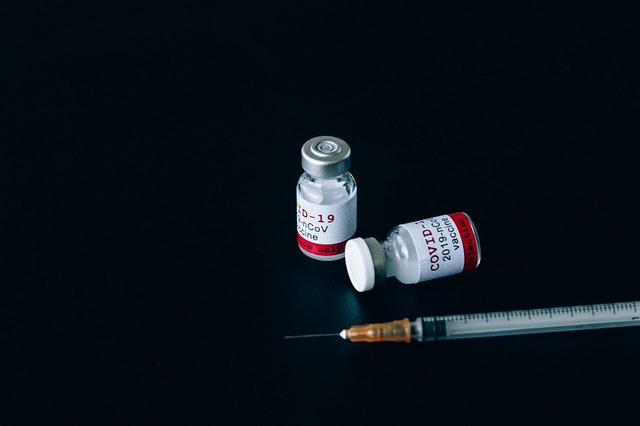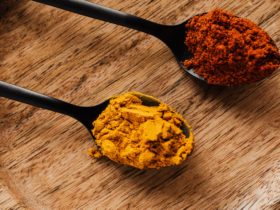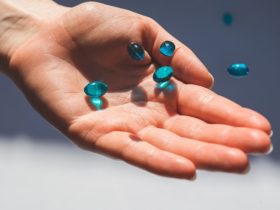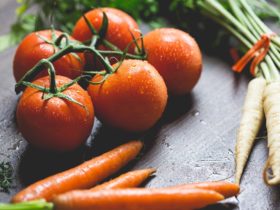In a couple of weeks, every American adult will be eligible to receive the COVID-19 vaccine. If you haven’t had yours yet, you may be wondering how to prepare, including what to eat or drink before or after your vaccination—and what to avoid.
It’s important to know that all three COVID vaccines were tested on people who ate their usual diets. That means the vaccines have been shown to be effective without any special nutritional preparation. But there are a handful of eating strategies that simply make sense to best support your body’s needs, both before and after you have the jab.
It’s important to know that all three COVID vaccines were tested on people who ate their usual diets. That means the vaccines have been shown to be effective without any special nutritional preparation. But there are a handful of eating strategies that simply make sense to best support your body’s needs, both before and after you have the jab.
Avoid alcohol before and after
As Health previously reported, there are a few key reasons to nix alcohol for at least a few days before and after receiving the vaccine. While some people have minimal or no vaccine side effects, others may experience fatigue, headache, muscle pain, chills, fever, and nausea, according to the Centers for Disease Control and Prevention (CDC). Even light alcohol consumption can trigger dehydration, which may intensify these side effects. And if you’re dehydrated or have a bit of a hangover, it may be difficult to distinguish between your body’s reaction to the alcohol versus the vaccine.
Drinking alcohol has also been shown to stress the immune system. In a paper published in the journal Alcohol Research, researchers noted that there’s been a long-observed relationship between excessive alcohol intake and a weakened immune response. And while alcohol may help you fall asleep faster, it triggers more sleep disturbances and interferes with overall sleep quality and duration, another disruptor of optimal immune function.
Eat for sleep, especially the night before
Being well-rested helps your immune system work to its fullest potential. To ramp up your sleep quality before you get vaccinated, be strategic about what you eat, especially for dinner.
A study published in the Journal of Clinical Sleep Medicine found that eating too little fiber (fruits, veggies, whole grains, pulses, nuts, and seeds) and too much saturated fat and sugar (fatty meat, dairy products, sweets) can lead to less restorative, more disturbed sleep. In contrast, a higher fiber intake led to more time in deep, high-quality, slow wave sleep. In the study, volunteers also fell asleep faster after eating meals provided by a dietitian, compared to those who selected their own meals.
Dinner meals that meet sleep-supporting criteria include hearty lentil soup paired with a garden salad dressed with extra virgin olive oil (EVOO) vinaigrette; wild Alaskan salmon paired with EVOO sautéed broccoli and roasted fingerling potatoes; a veg-packed stir-fry with citrus and lima beans over wild rice, topped with chopped cashews; and chickpea pasta tossed with EVOO, garlic, herbs, and a generous portion of oven roasted veggies.
If you need a snack between dinner and bedtime, reach for fresh fruit and/or nuts. But to allow your food to properly digest, try to give yourself about three hours between the time you finish eating and the time you go to sleep. As for beverages, be sure to cut off caffeine at least six hours before bedtime. And curb fluid consumption in the evening so you won’t have to get up in the middle of the night to use the bathroom.
Stay well-hydrated
Being well-hydrated is one of the most important ways to maximize how you feel, both before and after your vaccination. According to the Institute of Medicine (IOM), women need 2.7 liters of total fluid per day (over 11 cups), and men need 3.7 liters (over 15 cups). About 20% of our fluids come from food, but that still leaves 8-12 cups, based on the IOM’s guidelines, not including additional needs due to exercise.
I recommend aiming for eight 8-ounce cups, spread evenly throughout the day. Think of your day in four blocks: 1) from the time you get up to mid-morning; 2) mid-morning to lunchtime; 3) lunchtime to mid-afternoon; and 4) mid-afternoon to dinnertime. Aim for 2 cups (16 ounces) of water during each of these blocks. Set your cell phone alarm as a reminder if you need to. And if you’re not a fan of plain water, spruce up your H2O with healthful add-ins, like lemon, lime, fresh mint, sliced cucumber, fresh ginger, or slightly mashed bits of in-season fruit.
Swap processed foods for whole foods
Studies have shown that, during the pandemic, people have increased their consumption of foods high in sodium, added sugars, and/or total fats. With all the hardship and uncertainty this year has brought, it’s no wonder why many have increased their comfort food intake. But over time, highly processed foods can fuel inflammation; and systemic chronic inflammation can impair normal immune function.
One of the top strategies is to simply eat more veggies and fruit. According to the CDC, only one in 10 Americans eats the recommended minimum 2-3 cups of veggies and 1.5-2 cups of fruit daily. To hit the mark, work veggies into both lunch and dinner meals, and incorporate fruit into breakfast and a daily snack.
Eat a balanced meal before your appointment
While fainting isn’t listed as a common COVID-19 vaccine side effect, the CDC has received reports of people fainting after nearly all vaccines. But fainting during or after a vaccination is typically triggered by anxiety or pain rather than the vaccine itself. In addition to getting some reassurance about the procedure, drinking a beverage and eating a snack before the vaccination process have been shown to sometimes prevent anxiety-related fainting, the CDC says.
In addition to anxiety or pain, low blood sugar can also cause fainting. So eating a meal that helps regulate your blood sugar before your shot is a smart strategy, especially if you have a history of feeling faint during any vaccination process. Your best bet for blood sugar regulation is a combo of veggies, paired with lean protein, nutrient- and fiber-rich carbs, and healthy fat.
If your appointment is in the morning, consider eating “zoats,” oatmeal mixed with shredded zucchini, fruit, and nuts or seeds. Or go for a veggie and avocado omelet (made with eggs or chickpeas) with a side of fresh fruit. If your appointment is in the afternoon, fuel up with a grain bowl, made with greens and veggies, lentils, quinoa, and tahini, or a taco salad, made with greens, salsa, black beans, roasted corn, and guacamole.
If you get nervous before your appointment and you don’t feel like eating, try a smoothie made with spinach, plant protein powder or Greek yogurt, plant milk, banana, berries, and nut butter. Or sip a green juice and nibble a fruit and nut bar.





